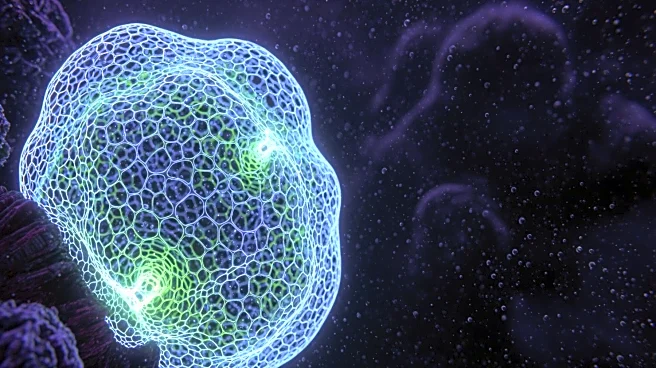What's Happening?
Researchers at the University of Basel have conducted a study on nematodes, revealing that certain nutrients can induce a mild stress reaction that benefits the worms' health as they age. The study, published
in Nature Communications, found that specific RNA molecules in food can prevent harmful protein aggregates linked to aging and disease. The research highlights the importance of diet in aging, showing that a balanced diet can support longer healthspan by activating autophagy, a cellular process that recycles damaged proteins. This mechanism not only protects the gut but also has systemic effects throughout the organism.
Why It's Important?
The findings underscore the significant impact of diet on aging and healthspan, suggesting that specific dietary components can stimulate protective mechanisms in the body. This research could pave the way for new dietary strategies to enhance health in old age and potentially prevent age-related diseases. The study's implications extend beyond nematodes, as it raises the possibility that similar dietary interventions could benefit humans, offering a potential avenue for improving health outcomes and longevity.
What's Next?
Further research is needed to determine if the beneficial effects observed in nematodes can be replicated in humans. Scientists may explore the potential of individual nutrients to spark protective mechanisms against age-related diseases. This could lead to the development of dietary guidelines or supplements aimed at promoting healthier aging in humans.
Beyond the Headlines
The study opens up discussions on the ethical and practical implications of using diet as a tool for aging management. It challenges existing perceptions of aging and health, suggesting that controlled dietary stress could be a viable strategy for enhancing healthspan. This could influence public health policies and dietary recommendations, emphasizing the role of nutrition in aging.











